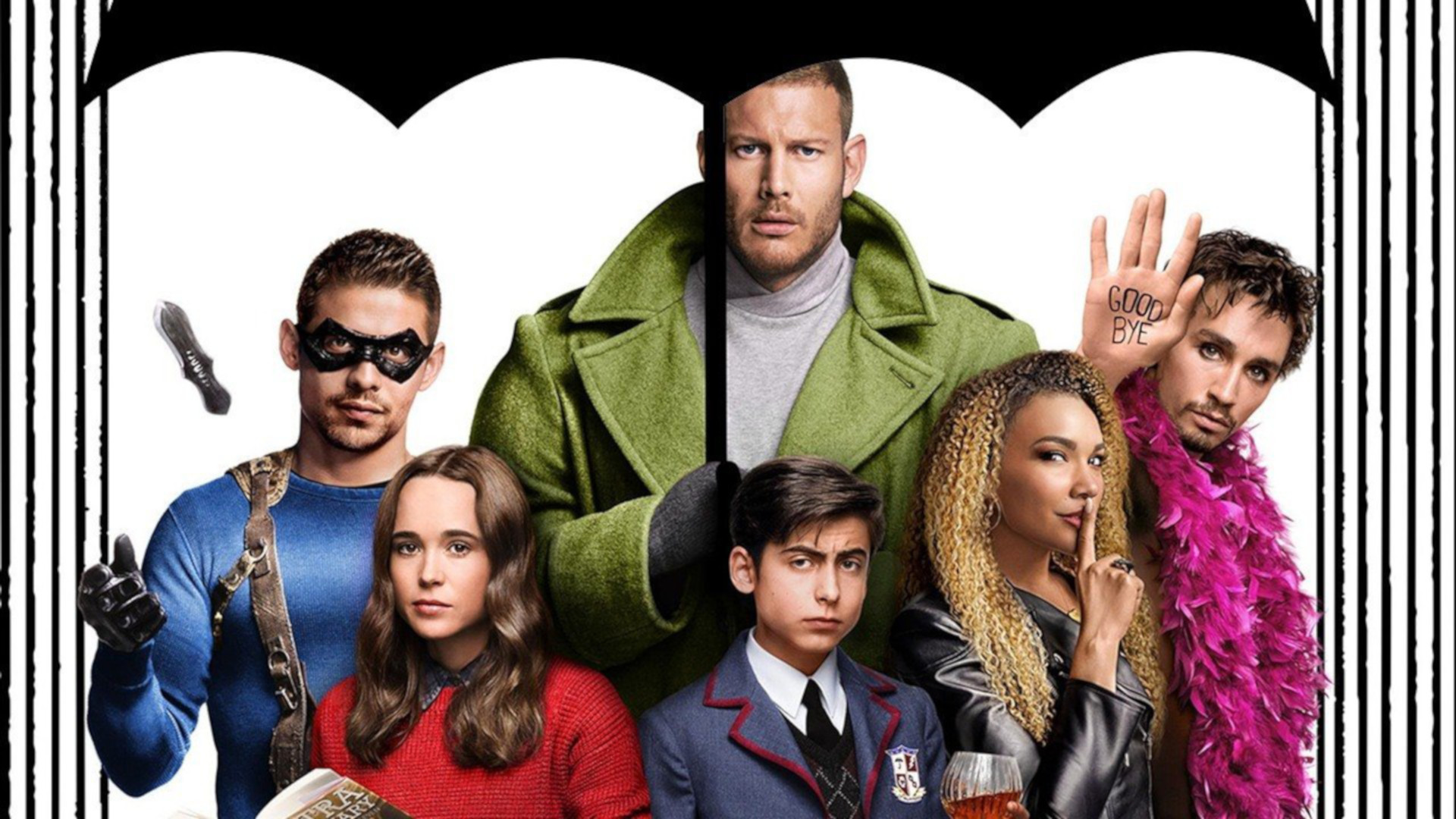We were excited when Netflix dropped the trailer for “The Umbrella Academy”, their new superhero-ish series based on the Dark Horse comics series of the same name. Partly because we as a family are squarely in the nerdy target demo for anything involving uber-human powers, and partly because it seemed from the trailer that at least one character was coded as queer. A gay or gender non-binary superhero? Pure catnip in our house!
The series dropped February 15th, and we’ve been watching it nightly with the kids and finally finished up this week. (Full disclosure, our younger kid tapped out early on; the series is pretty dark and sometimes bloody, and we need an episode or two of Schitt’s Creek as a palate-cleanser after every episode.)
It centres on seven siblings, all born on the same day under mysterious (and frankly unsettling) circumstances, all of whom have latent powers. They were adopted as infants by reclusive billionaire Sir Reginald Hargreeves (Colm Feore). Under the name The Umbrella Academy, he trained them as superhero crimefighters, teaching them to refine and use their innate individual abilities.
As they grew up they became estranged, but the dysfunctional family is brought together when Hargreeves dies. On the day of his funeral, one of the siblings, whose ability is to travel through time and space, abruptly returns from a future timeline to inform the others that they have to work together to prevent an upcoming apocalypse.
It’s an intriguing setup, and things just get weirder and more intense from there as various characters hop, skip, and jump through time and the siblings work against the clock to stop impending doom. I’m going to try not to spoil any major plot points, because part of the fun of watching (or bingeing) the series is discovering the story and the characters at the show’s pace.
One of the more entertaining of the siblings, Klaus (Robert Sheehan), seems to be coded as queer or genderfluid. He is gifted (or cursed) with the ability to communicate with the dead (cue your best Haley Joel Osment Sixth Sense imitation) and he dabbles pretty heavily in various substances, possibly in an effort to self-medicate and prevent his visions.
At one point, Klaus is accidentally transported to the front lines in the midst of the Vietnam War. He’s taken for a U.S. soldier and quickly issued a uniform and a gun and has to fight alongside an army unit. Before he’s brought back to the present timeline, he winds up falling into a romantic relationship with a fellow soldier, who is [SPOILER] tragically killed in the line of duty. When Klaus returns to the present, he’s suddenly motivated to get clean, ostensibly so he can have a vision of his lost love.
It’s a decent motivator for his character, but I was disappointed that we couldn’t see a queer character have a loving relationship that doesn’t end tragically. I can’t shake the feeling that this is an example of fridging, a trope in which a hero gains motivation for his quest because his (usually female) love interest is killed, raped, or otherwise harmed. (See also: Deadpool 2.) The term was coined to refer to wives and girlfriends of comic book heroes, but I wonder if what we’re seeing here is fridging of a queer love story.
Mind you, no-one on this emo series gets to have a lasting, loving relationship of any kind, so perhaps I’m being too harsh. Still, ultimately, while I’d recommend watching the Umbrella Academy for its dark and twisty take on heroes, it’s not one I can recommend on the basis of its limited and disappointing LGBTQ representation. Season 2 hasn’t been confirmed yet, but if there is one, let’s hope Netflix takes the opportunity to course-correct and show Klaus in a healthy relationship.
